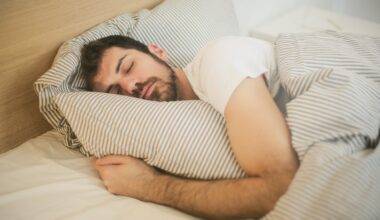9 Proven Healthy Ways To Lose Weight Without Diet, Trying to lose weight is boring, exhausting, and full of conflicting information for most of us. In a 2016 article published in the New York Times Magazine, there is a strong body of research showing that “diets are rarely effective in the long term, do not improve health, and do more harm than good.”
At the heart of the problem, writes Amodt, is the fact that each person has what is called a body ‘set point’ – a specific weight range that ‘varies from person to person and is determined by genes and life experience.” The brain becomes all kinds of things. Using tactics to bring the dieting body back to its normal range is why diets often fail. The combined effect of all this information – not to mention the difficulty in losing weight – can quickly lead to feelings of paralysis and overwhelm.
If dieting isn’t an effective way to lose weight long-term and sustainably, what can help people lose a few pounds without the ill effects of dieting?
Enemy number one: stress
A sneaky part of the weight gain equation is, surprisingly, stress. And even celebrities are not immune to the stresses of life that lead to packing. The vast majority of patients will gain weight when they are stressed.
This usually happens in cases of chronic stress: There is a certain threshold that allows people to identify when they feel that load of stress, outside the stress of everyday life … Usually when that is reached. the threshold, is when we see the struggle with weight regulation.
Why is this happening? stress causes our bodies to produce high levels of the hormone cortisol. Cortisol leads to insulin spikes, causing our blood sugars to drop, leading to cravings for sugary and/or salty foods, and can lead to emotional eating or overeating, which is quite a double-whammy if it’s about weight gain. For that:
De-stress
Since stress makes our bodies fat, this is one of the best things we can do for both health and weight loss – and this is one of the best health tips ever, as well as getting the job done. a tropical island – it’s for relaxing. Learning to manage stress in a healthy way, such as exercise, meditation, mindfulness, etc., can help manage or control our stress, which in turn can lead to weight loss.
Yoga, especially relaxing forms like Yin and Hatha, is one of the ways to lower the nervous system. When you’re bombarded with physical or mental stress, the crowd, noise, and everyday people, you should try this as a means to calm your body. A calmer body grabs food less often and stores food differently.
So, if you’re feeling exhausted and need a break, Not only is relaxation good for your overall health, but it can also help with your weight.

Drink more water
You’ve probably heard that if you want to lose weight, you need to drink more water. That’s not all, because the benefits of water are touted all over the internet. Whether or not you’ve believed in water’s ability to help you lose weight in the past, increasing your water intake — and if it’s not plain water, other low-calorie or no-calorie beverages like sodas, seltzer water, or tea – can help control your appetite.
Our bodies can signal hunger when in fact we’re thirsty, which can lead to overeating when you really need water. staying well hydrated can also help with digestion, so you’ll reap several benefits by sticking to that water bottle. Although some calorie-free drinks have the same benefits as water, the weight loss benefits don’t necessarily apply to diet sodas. So choose your drink wisely.
Eat more protein
Eating extra protein can greatly aid weight loss. eating 20 to 30 grams of protein per meal, noting that it can help with satiety and stabilize blood sugars. eating a high-protein breakfast is especially important. Most people don’t eat enough protein for breakfast, stressing that it’s important to distribute protein throughout the day to maximize muscle growth and recovery and prevent muscle loss as we age.
Eating a high-fiber, protein-rich breakfast makes you feel full and satisfied for longer and can help minimize mindless snacking.
Where do you get all that protein from? looking at foods such as lean meats, nut butter, seeds, low or low-fat dairy, seafood, and tofu.
Exercise is key
In the news that will probably not be a surprise, exercise is an important part if you want to lose weight without going on a diet. However, there are some surprising details on how and when you train, which can influence the efforts for weight loss! For example, a study found that women who ate a meal full of proteins before burning more calories than women exchanged An empty stomach.
Since pre-breakfast sweat sessions are not for you, it is not necessary to force yourself to do it in the name of better calorie combustion.
A study found that men who spoke more intensely and more intensely for a longer period of time had lower levels of ghosting – a hormone that stimulates hunger – compared to the men who participated in exercise moderate. Although the relationship between exercise and raw levels is not clearly understood, the study suggests that long pieces can help remain hungry at a distance.

Add weights and HIIT
If long workouts aren’t your thing, strength training and high-intensity interval training — or HIIT — can also be very effective — maybe even more so than long cardio sessions. Robert Herbst, personal trainer, and powerlifter noted that cardio can sometimes lower your metabolism. “We are always designed to be hunter-gatherers,” he explained. “
When someone does a long cardio fight like half an hour on the treadmill, their body perceives it as part of a long and uncertain search for food, so it adapts and becomes more efficient at retaining energy. energy.” the metabolism slows down and people burn fewer calories. Herbst told us that strength training, on the other hand, involves “complex compound movements like squats, lunges, and deadlifts” that can increase muscle mass. And an increase in muscle mass also means an increase in metabolism, including an increase in calorie burns, even hours after stopping strength training for the day.
Eat the rainbow on a smaller plate
Skittles may have taken the market by storm with the phrase “taste the rainbow,” but that idea is even more important when it comes to fruits and vegetables. Eating a wide variety of brightly colored products ensures that you are getting a healthy amount of vitamins and minerals, which are important if you want to lose weight.
foods like sweet potatoes and carrots are loaded with beta-carotene, and dark green leafy vegetables are excellent sources of folate. there are many ways to do this, including eating a fruit (like a banana) for breakfast and eating a small salad with most meals. and adding more vegetables to foods like pizza and soup. Whether fresh, frozen, or canned, the more fruits and vegetables in your meals, the more they can support weight loss and a healthy lifestyle.
And while eating that rainbow of produce, you can manage portion control more easily by eating on smaller crockery. instead of using food scales and measuring cups for demanding and precise food portions, a simpler solution is to eat in a small bowl or on a dinner plate. The dinner plates are already giving you too much food unless you’re eating a big salad, Switching to a smaller plate is simple and takes the guesswork out of portions.
Mindful eating
Applied to food, awareness means noticing the colors, smells, tastes, and textures of food; chewing it slowly; getting rid of distractions like TV or reading; and learning to cope with the sense of guilt and anxiety about food. stressful eating and mindless eating are the biggest obstacles to weight loss in this country.
These behaviors cannot be ‘solved’ with diet In fact, diet often worsens disrupted eating patterns. A person needs to learn to reprogram their thoughts about food and about themselves, and that’s what mindful exercise can do. it takes time for the stomach to signal to the brain when you are full, eating too fast can lead to extra calories. With this in mind, it is important to pay attention to the taste and texture of the food, which means not eating while watching TV or working on the computer. taking the time to sit down and eat, eat slowly, and enjoy the food.

Incorporate movement
While exercise is crucial for weight loss without dieting, incorporating exercise into your daily life can be another powerful tool. a concept called Non-Exercise Activity Thermogenesis, or NEAT: the idea that unplanned fitness behaviors can [really] add up in the long run. These behaviors include things that may seem mundane but are actually so simple, such as Doing this all the time, which will increase calorie consumption.
Consistency is key! Avoid elevators as much as possible, especially if it’s only a flight or two. taking the stairs instead, the key to using more energy storage is simply to do more, so the perfect opportunities are when you have stairs available. With escalators, you just go up. it may be helpful to build your social life around activities that require exercise. For example, Instead of meeting a friend for lunch, meet a friend for coffee and a walk around the neighborhood or a yoga class together. This will help you maximize your time since you will be socializing with friends simultaneously. and your family while burning calories.
Get lots of sleep
If you need more incentives to close your eyes, it’s worth noting that getting enough sleep can help you lose weight. According to a 2006 study published in the American Journal of Epidemiology, sleep restriction affects metabolism in a way that makes weight gain easier. The analysis, which tracked the weight and sleep habits of women participating in the Nurses’ Health Study, found that women who slept five hours a night gained slightly in weight compared to women who slept seven hours.
A 2013 study also found that participants who reported sleeping less than six hours a night also gained more weight, and in participants who were not obese at the start of the study, “less than 5 hours were associated with an almost 40% increase in the risk of developing obesity compared to 7-8 hours of sleep per night. “
What is the relationship between sleep and weight? Although the researchers aren’t 100% sure how they are associated, hormones play a role. It’s easy to overeat when you’re tired because your body depends on certain hormones to tell you when you’re hungry. When you’re sleep deprived, those hormones can go wild, leaving you looking for a quick shot of energy in the form of simple sugars and carbohydrates.
If you desire to get any product that makes your life easier you can check this link:
“Weight loss doesn’t begin in the gym with a dumb bell; it starts in your head with a decision.”
-TONI SORENSON







